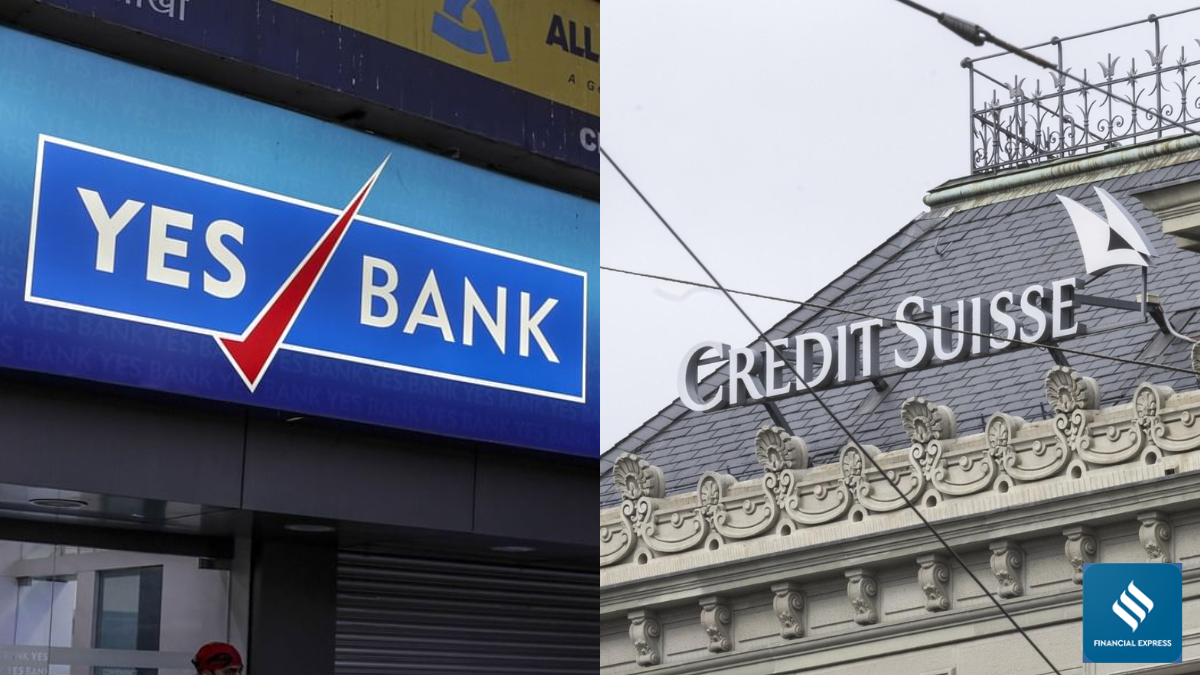22 Mar , 2023 By : Monika Singh

As Swiss regulator FINMA decided to write down $17 billion worth of Additional Tier 1, or AT-1, Credit Suisse bonds in its rescue merger with UBS, Indian investors are reminded of similar horrors regarding AT-1 bonds, as experienced by the Yes Bank shocker in 2020. The RBI, supported by the SBI-led consortium, wrote down private lender Yes Bank’s Rs 8,400 crore in perpetual bonds, while restructuring the lender in an attempt to bail it out in 2020. The move, which wiped off thousands of crores in investor wealth, led to a furious uproar and an on-going legal battle with the regulator.
Following the 2008 financial crisis, regulators across the globe attempted to shield taxpayers from increased risk, deciding to increase the capital required to be held by financial institutions. Therefore, to augment the capital held, AT-1 bonds were created. The bonds have the unique feature of absorbing loss and shocks, including depleting capital. If a bank’s capital falls below a required threshold, the bonds can be written off or converted into equity. This makes it a riskier investment, and as a result, the coupon rate on this debt instrument is higher. The hybrid security sector is worth over $275 billion.
Investors believe that the move draws significant parallels to the stressed lender Yes Bank’s Rs 8,400 crore AT-1 bond write down. Holders of both the perpetual bonds saw their value being entirely wiped away. Yes Bank investors cried foul, stating that the bonds were misrepresented by the management and were mis-sold to investors, some of whom did not meet the minimum qualifications or necessities to purchase the securities, leading them to be caught unaware when the subsequent risks hit. The RBI restructuring of the bank should have written down the equity value of the bank prior to the hybrid security, alleged the lender’s AT-1 bondholders, who are embroiled in a legal battle regarding this decision.
Conversely, CNBC suggested the prospectus of the Credit Suisse AT-1 bonds favours shareholders in the case of the bank’s failure, in a rare divergence from convention. Shareholders received $3.23 billion from the firesale to UBS, which goes against traditional norms. Typically, bondholders get paid first in the unfortunate event of a bank or company collapsing, while shareholders’ investments are erased. Despite the prospectus, analysts from Goldman Sachs said this move “can be interpreted as an effective subordination of AT-1 bondholders to shareholders.” Some bondholders have banded together to fight this decision, as the EU regulates that losses should be absorbed by shareholders, following which bonds can be written off. However, it should be noted that Switzerland (Credit Suisse’s country of origin) is not part of the European Union.
Disturbances in the AT-1 bond market could result in souring sentiments, even if the Credit Suisse-related fallout might not impact the insulated domestic banking system. “These bonds may not find favour with investors after the CS and Yes Bank write offs,” said Arihant Bardia, CIO and Founder, Valtrust. If capital raised from these bonds dries up, lenders will be forced to shore up deposits.
In the case that weakness in the AT-1 bond market extends, with less activity witnessed, private and public lenders might face raised costs for funding. Given the unrest in the financial markets and banking sector across the globe, banks have already begun to witness significant tightening in lending conditions, which would inevitably lead to an adverse impact on economic growth. “As a result [of the banking rout], we remain selective in our sector picks, preferring healthcare, energy, consumer discretionary and communications. The first two are defensive sectors, while the other two benefit from the fall in rate expectations we’ve seen recently as a result of the turmoil,” said Willem Sels, Global CIO, HSBC Global Private Banking and Wealth. Reuters, quoting sources, said that AT-1 bonds from UBS with a 2025 call fell to 85 cents on the dollar, from 93 cents. Additionally, the AT-1 bond market in the US and Europe tanked, resulting in yields spiking sharply.
A note by Jefferies reported that Indian banks have lower exposure to AT-1 bonds following the Yes Bank predicament. The market has found itself polarised, with lenders depending less on the fixed-income instrument and investors favouring larger banks, such as SBI, HDFC Bank and Canara Bank, for these bonds. Citi further added that despite the lower exposure, Indian banks have raised AT-1 bonds at 65-75 basis points premium over government bonds.
However, the state-run banks’ common equity Tier-1 capital ratios are low, and a weak AT-1 bond market could necessitate equity capital raising, particularly in the case of the State Bank of India, said Reuters, citing Macquarie analysts. Overall, Citi said that while “regulators may tighten capital and liquidity requirements, which may impact smaller banks more”, over the long term, the Credit Suisse move is unlikely to undermine the scope of the broader AT-1 bond market, not just in India, but across Asia as the terms offer investors greater protections while investing in these instruments.
0 Comment